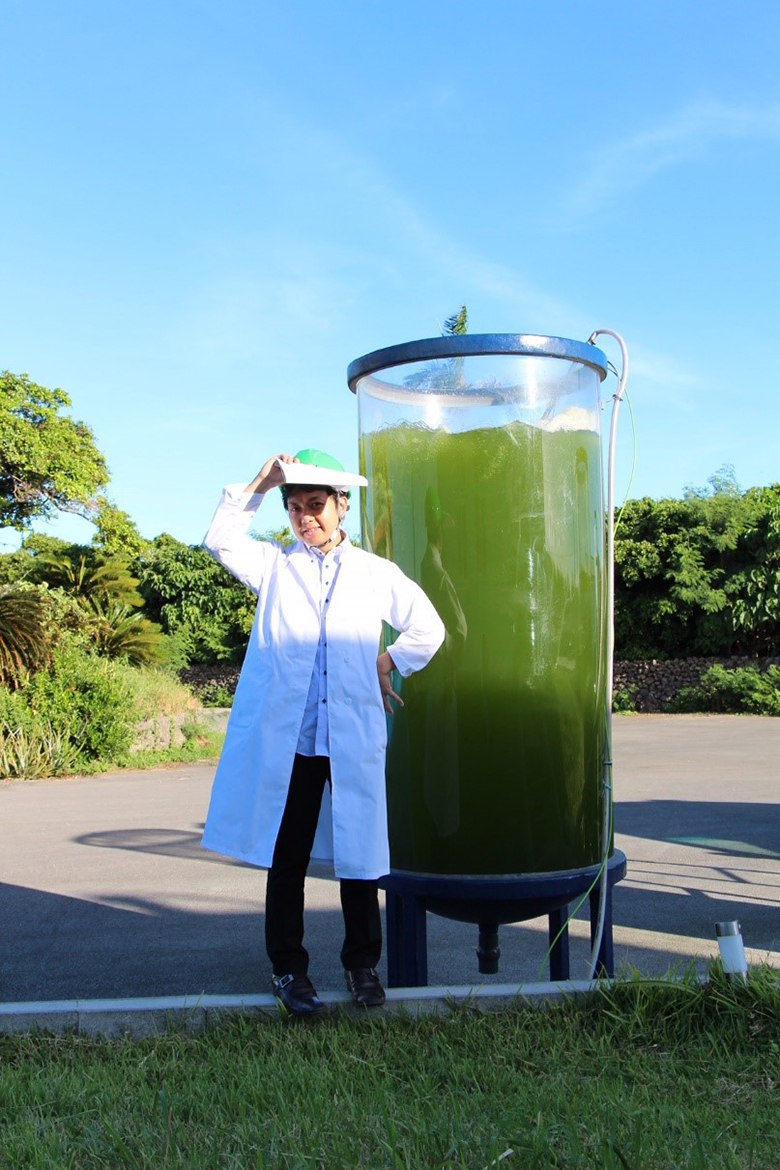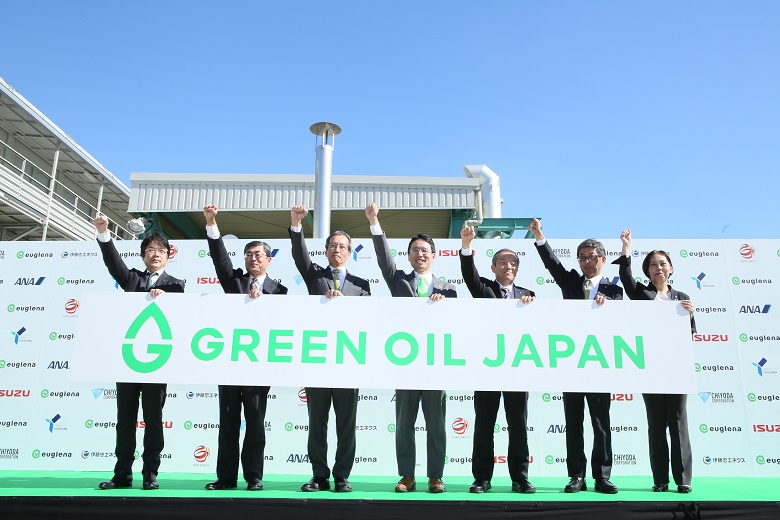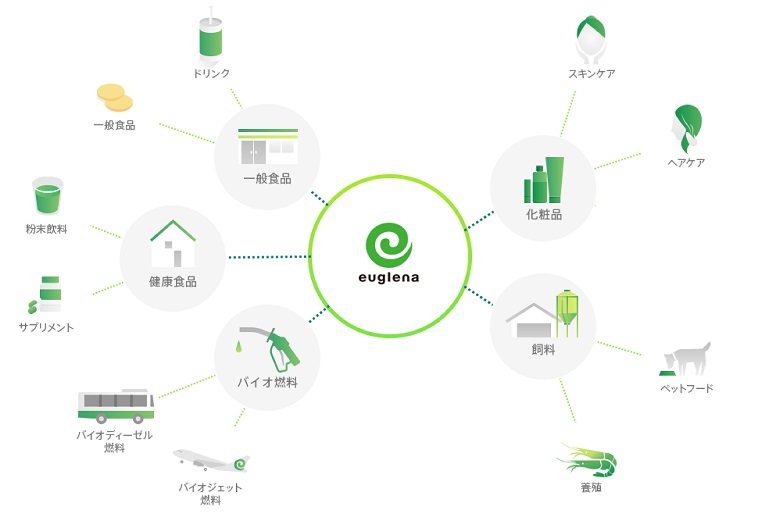It has been more than ten years since Euglena first time in the world.
Suzuki, a researcher who supported the success and one of the founding members, describes science and business from the perspective of research and business activities.
The road that Euglena has taken
To introduce myself again, I started researching Euglena when I was a university student, and while I was enrolled in graduate school, I was involved in the establishment of Euglena Co., Ltd. and mass cultivation of Euglena, and I have been involved in Euglena until now. We have continued R & D work related to products and services from basic research.
Among them, I feel that the world is changing in some parts as an extension of the mass culture of Euglena. It can be recognized by the fact that Euglena is sold as food in daily life, family members use Euglena cosmetics, and although it is under test, a bus equipped with fuel derived from Euglena is moving. ..
Most people didn't know about Euglena when I started my research. Even if I knew it, it was only recognized as a strange creature with the animal-like properties of flagella that can be seen under a microscope and the plant-like properties of photosynthesis.
When I start talking about the charm of Euglena (I will tell you about it at another time), Euglena, which was initially recognized as such a strange creature, is now mainly used in Japan as food and cosmetics. , People's lifestyle is incorporated. It is also recognized that Euglena has the potential to change the world, and even human consciousness has changed.
At first, Euglena is good for both the body and the environment, so if you make it, it will sell! I thought, but in reality it wasn't that easy. Mass-culturing Euglena was just an invention, and it was not enough to realize innovation. Being able to mass-cultivate Euglena and harvest a lot was just like stacking cardboard boxes full of Euglena between your eyes.
The world cannot be changed just by making a lot of euglena, and if there are people who need euglena and the euglena itself is not delivered to them or services using euglena are not provided, everyone will use it in their daily lives. You can't do that. After the successful invention of mass culture of Euglena, it was necessary to overcome a number of barriers before people could actually use Euglena.
Innovation and invention
Recently, the word "innovation" has been attracting attention in the context of making the world a better place. However, I feel that it is not obvious what kind of state innovation means and what kind of process it will be realized.
The word "innovation" is translated as technological innovation in Japanese, but I think it is necessary to recognize the difference in meaning from "invention" in order to correctly grasp the meaning of this word. I will.
Is it the definition of "invention" to invent and discover new technology, and "innovation" to transform the world with new technology? Recalling the history of our company since its founding, I think that this "innovation" has always been a key point.
By the way, I think there are many researchers who want to invent technologies that will change the world. However, if we stay at the invention of technology, innovation will not occur. For example, even if an engine is invented, the world cannot be changed by itself, and it will not change the world until it is incorporated into a vehicle equipped with an engine or a machine that utilizes power. It is wonderful that researchers want to invent and discover good things, but I think that many researchers are satisfied with it.

Change the world as a team
I think that "open innovation" is now flourishing among companies as a form of evolution of innovation. "Open innovation" is a concept advocated by Professor Henry Chesbrow of Harvard University, and is said to be an innovation that develops innovation within the team together with partners outside the team.
It is no exaggeration to say that our history since 2005, when we achieved mass culture of Euglena, was the process of finding an “innovation” partner.
I have continued research and demonstration with Professor Nakano of Osaka Prefecture University, who is one of my teachers, on how Euglena is good as a food and whether it can be said to be safe. In addition, we have continued to communicate with the world while considering and selling food products with general trading companies and major convenience stores. Recently, a project ("GREEN OIL JAPAN") is underway by many partners such as companies with various technologies, local governments, and user candidates for making biofuel to be mounted on jet aircraft. Can be said to be a form of "open innovation."
The appeal of "open innovation" is that if each technology is clarified, it will be possible to build a team to systematically innovate based on the division of roles.
By having many partners utilize their respective strengths and build teams together, we are able to work on changing the world with innovation and euglena.

What supports open innovation
When you think about it, the core of such open innovation may not be just technology, but the desire to "change the world with Euglena."
At that time, the management members of our company were mainly people in their twenties, and the technical capabilities themselves were inferior to the research teams of major companies and famous universities, and we lacked various experience points. .. However, including Bangladesh, the team was stronger than anyone else in their desire to "improve nutritional problems around the world" and "find the potential for a drastic solution to global warming."
I think that our strong feelings were conveyed to our partners and led to open innovation. And that feeling is still the source for the next innovation.

Euglena Executive Officer in charge of R&D at Corporation
SUZUKI Kengo
Graduated from the University of Tokyo, Faculty of Agriculture, majored in biological system engineering, founded Euglena Co., Ltd. in August 2005, and became a director and general manager of the R&D Department. In December of the same year, we succeeded in the world's first large-scale cultivation of the microalgae Astragalus (scientific name: Euglena) outdoors for food. Received a doctorate in agriculture from the University of Tokyo in 2016. While engaged in research on the utilization of microalgae astragalus and other algae, he is also engaged in research aimed at developing the production of biofuels derived from green beetles.
Winner of the Tokyo Metropolitan Venture Technology Grand Prize (2010), and co-authored "Culture Technology for Mass Production and Commercialization of Microalgae" (Information Organization of Japan, Inc.).

